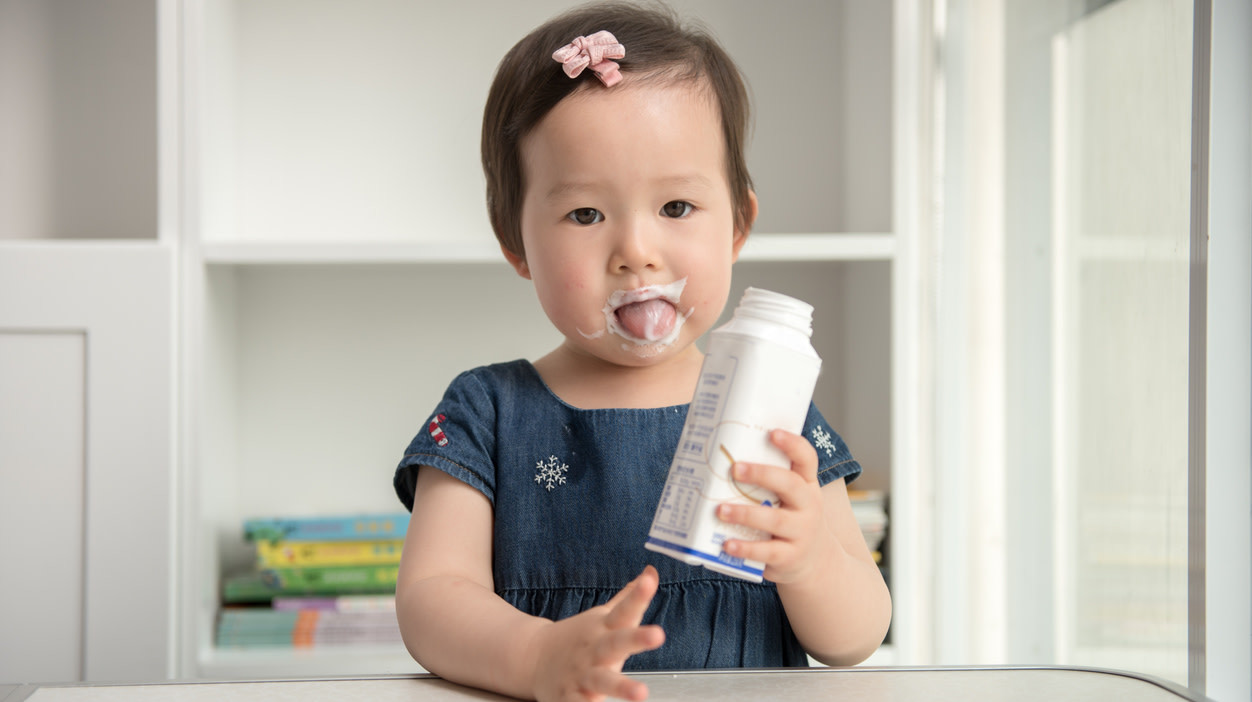Toddler Milk Is The Latest Great American Scam, Study Shows
Here in 2020 America, we have a very loose definition of the word "milk." A word once used to describe fatty, mammal-produced nutritional fluid can now pretty much apply to any white drink that goes okay with cereal—of the soy, oat, or "Muscle" varieties. The latest milk genre worth debunking is also the fastest-growing breast milk substitute. It's called toddler milk, and it's the latest crap we're feeding the under-4 set.
Toddler milk, as the name suggests, is marketed for 9-month-olds to 3-year-olds. It's supposedly a sort of in-between from breast milk/baby formula to cow's milk, a step experts agree is wholly unnecessary. Apparently by age two, kids can eat pretty much whatever the rest of their family does (perhaps in mushier portions, with broccoli florets flung about), and that includes drinking cow's milk and water. According to The Atlantic, nutritionists say toddler milk is "expensive, unnecessary, and possibly even unhealthy." I'm no nutritionist (or parent), but I could tell you that from the label. The stuff's made of powdered milk, corn syrup, and vegetable oil. It has neither the protein nor the nutrients of infant formula, and it does have added sugars from the syrup. It might even get kids hooked on sugary beverages from a pre-memory age. And unlike infant formula, toddler milk isn't regulated by the F.D.A. So toddler milk is essentially soda dressed up as baby formula.
And yet, here we are, living in a world where marketing reigns supreme over science. While baby milk substitute sales have slowed in recent years, those same companies are cleaning up by pushing toddler milk. A new study out of the University of Connecticut found a correlation between advertising spending and profit in the toddler milk industry between 2006 and 2015. The writers of the study suggest there should be some regulation on toddler milk advertising, as the product deliberately brands itself like baby formula. The whole industry banks on well-intentioned parents not knowing the real difference between the two, and still wanting to provide whatever will make their kids strong and healthy.
Excuse me, I have to go update my running list of reasons raising children is terrifying—be right back!
